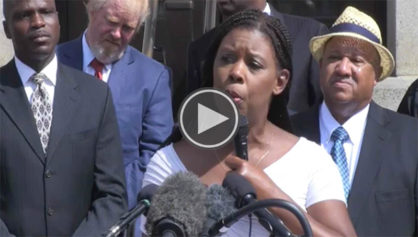State Sen. Wendy Davis made national headlines when she held a 13-hour filibuster to stop the Texas legislature from passing an anti-abortion bill, but last night the Texas House approved tough new abortion restrictions anyway—the third time this year the measure has been considered.
As activists on both sides of the issue from Texas and beyond descended on the Capitol building in Austin holding raucous demonstrations, the lawmakers debated for more than 10 hours Tuesday before the bill was approved along party lines. After it passes the House, the measure goes to the state Senate, where the Republican majority is also expected to approve the bill.
While the 20-week ban has gotten the bulk of the attention, perhaps the most far-reaching portion of the bill is the restrictions on the abortion facilities. Abby Johnson, a former Planned Parenthood director and now a pro-life advocate who testified during the Texas Senate hearings this week on the abortion bill, claims the ban on late-term abortions is not the most disputed portion of the bill.
“What’s being highly contested by abortion supporters in this bill is not really the 20-week ban,” said Johnson. “It’s the requirement that all abortion facilities be ambulatory surgical centers, which would require either they be compliant of these regulations by abortion centers or they would be closing down.”
Republican leaders, including Gov. Rick Perry and Lt. Gov. David Dewhurst, are eager to pass the bill quickly through the Republican-controlled Legislature in a second special session. Democrats are virtually helpless to stop it, left with the options to perhaps slow the bill down, attract as much attention as possible and lay the groundwork for a federal lawsuit to block it once it becomes law.
While women from both parties who support abortion rights introduced a series of amendments to water down House Bill 2, they hung coat hangers on the front podium to symbolize illegal abortions, which they say will become more common if the law is enacted. Even after Rep. Senfronia Thompson, D-Houston, called for an exception to the 20-week ban in cases of rape and incest, Laubenberg rejected the proposal.
In Texas, an anti-abortion voting record is critical to winning Republican primaries as the Texas Alliance for Life, a Christian group that maintains a scorecard on lawmakers, sends out messages on Twitter opposing each amendment and signaling how lawmakers should vote for a high score.
Many of the supporters of the restrictions say they will improve the health care women receive by placing more stringent conditions on abortions. In fact, Laubenberg said on the floor of the House that her bill would ensure that women get high-quality treatment while protecting “babies” after 20 weeks of gestation.


